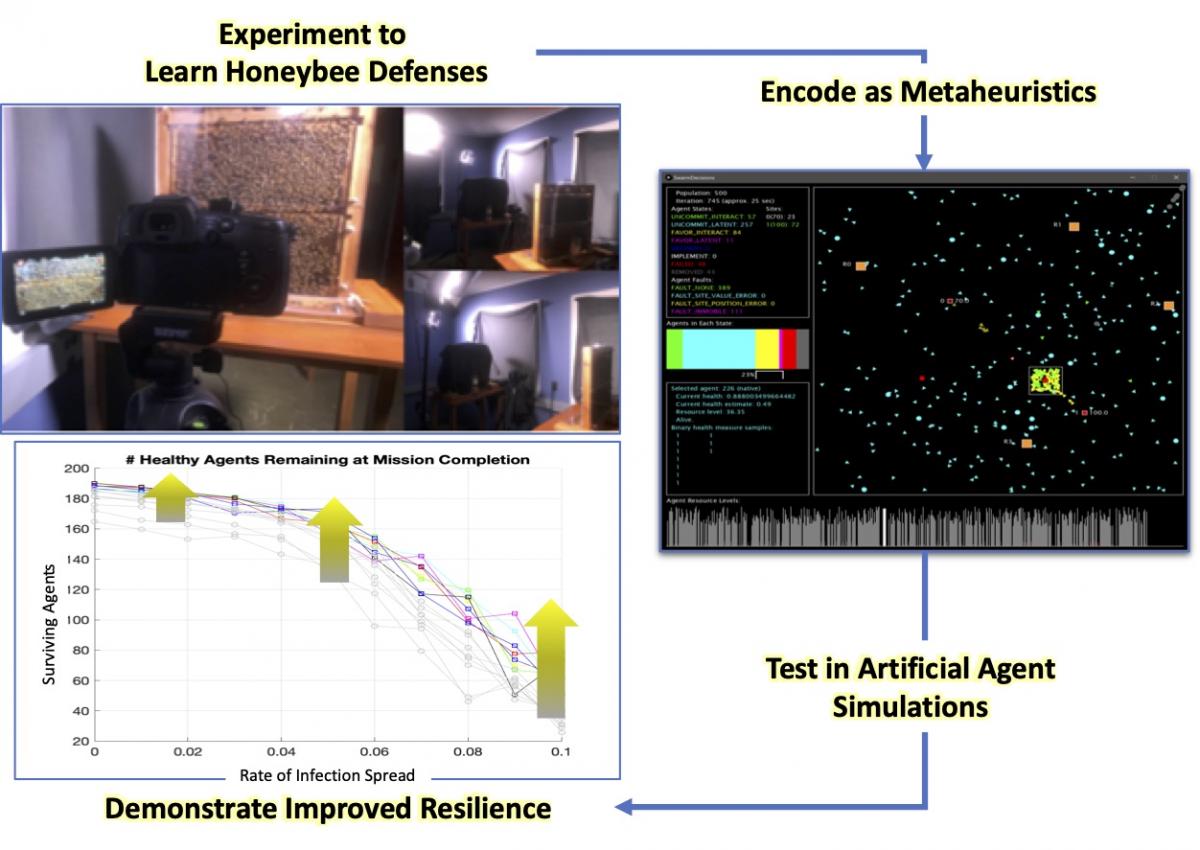REPAIR: Resilient Emergent Properties for Autonomous Agent InteRactions
Background:
Research of biological systems and “how nature solves problems” has provided many analogical insights for modern engineering. Recent observations of honeybee colonies show fascinating expressions of altruism and drifting behavior that make colonies resilient to environmental threats. Novel concepts like self-removal (altruism) and re-identification (drifting) may also benefit artificial networks of autonomous agents.
SIFT Approach:
This framework works through self-removal, drifting and other behaviors modeled from literature and new exp. results. It adds “metaheuristics” (MH) to existing low-level swarm control algorithms. It also contains multiple layers of MH policies designed to govern execution of select behaviors. This quantifies performance of emergent properties using control-theoretic principles. Lastly, we designed / tuned MH policies through simulation-based experiments to improve resilience – ability to maintain emergent properties in the presence of adverse conditions and threats.
Benefits:
- Enhancement of baseline swarm algorithms.
- New abstract methods to govern / steer low-level policies.
- Metaheuristics are both domain-agnostic and platform-agnostic
- Increased trust in autonomy through improved resilience – emergent properties more reliable.


